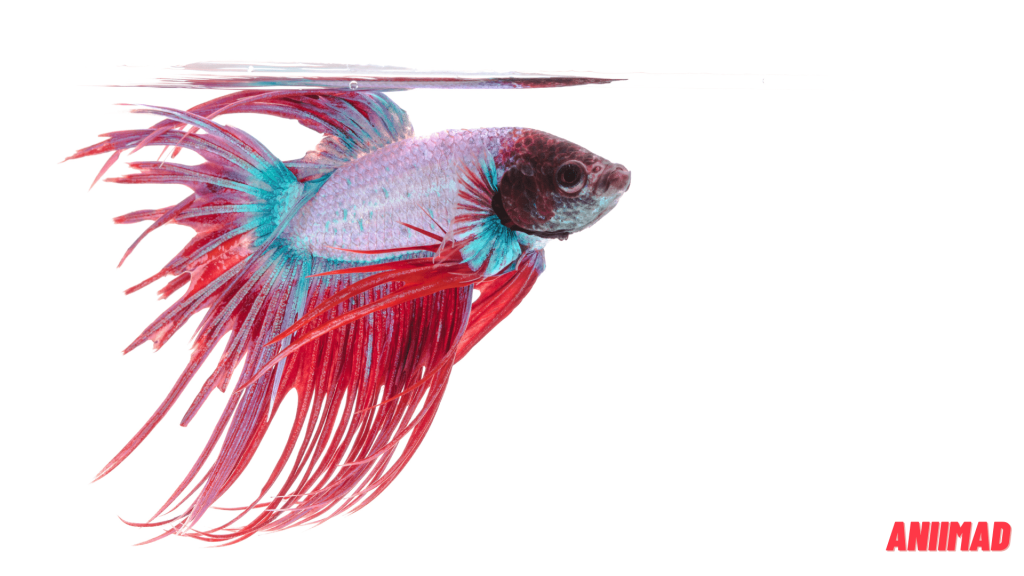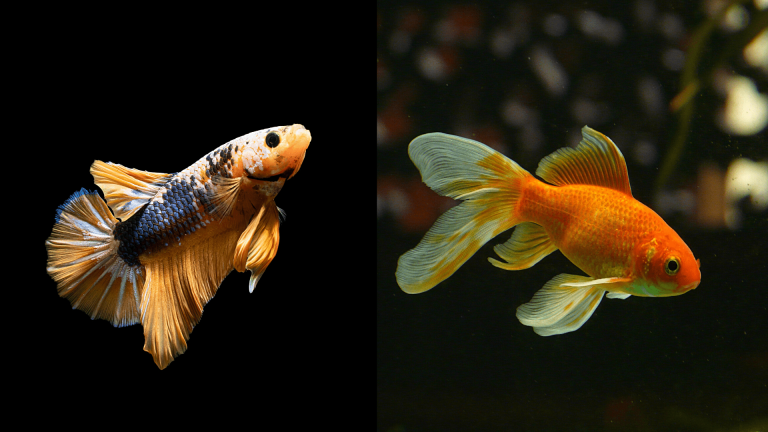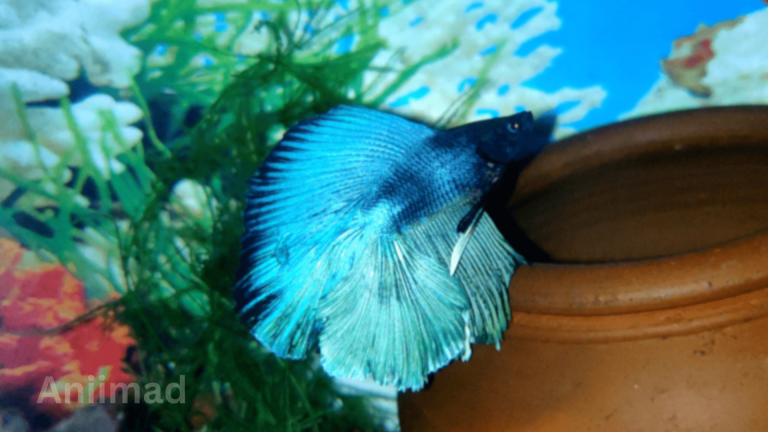8 Factors That Affect Betta Fish Lifespan & FAQs
Contents
- 1 The Average Betta Fish Lifespan
- 2 The 8 Factors That Affect Betta Fish Lifespan
- 3 Top 8 Tips for Increasing Their Lifespan
- 4 What Kills Betta Fish?
- 5 Do Betta Fish Get Lonely?
- 6 Here are Some Frequently Asked Questions About the Betta Fish Lifespan
- 6.1 How long do betta fish typically live?
- 6.2 Can betta fish live longer than three years?
- 6.3 Why do betta fish have a relatively short lifespan?
- 6.4 How can I make my betta fish live longer?
- 6.5 Can poor care shorten the Lifespan of betta fish?
- 6.6 Can betta fish die of old age?
- 6.7 Are there any telltale symptoms that a betta fish is getting close to the end of its life?
- 7 Conclusion
8 Factors That Affect Betta Fish Lifespan. A betta fish typically lives for 2 to 3 years. However, betta fish can occasionally survive up to 5 years or even longer with adequate care and a healthy environment. It’s important to note that these are general estimates, and individual betta fish can vary in their Lifespan. Providing your betta fish with appropriate housing, nutrition, water conditions, and regular veterinary care can contribute to their overall health and extend their Lifespan.
The Average Betta Fish Lifespan

I’m sorry if I caused any misunderstanding. A betta fish usually lives for 2 to 3 years on average, while some bettas may live longer; this is the general range you can expect for these fish. The Lifespan of a betta fish can be affected by several variables, such as genetics, care, nutrition, and environmental circumstances. By providing optimal care and suitable habitat, you may increase the chances of your betta fish living a longer and healthier life.
The 8 Factors That Affect Betta Fish Lifespan
Several things can impact a betta fish’s Lifespan. Here are eight essential factors to consider.
01. Water Quality
Maintaining clean and properly filtered water is crucial for the health and longevity of betta fish. Regular water changes and monitoring water parameters, such as temperature, pH, and ammonia levels, are essential.
02. Tank Size
An adequately sized tank is essential for betta fish. Stress, a lack of swimming room, and poor water quality are all consequences of a tank that is too tiny. A minimum tank size of 5 gallons recommend, but larger tanks are even better.

03. Water Temperature
Betta fish are tropical and require a stable water temperature between 76-82°F (24-28°C). Fluctuations in temperature can stress the fish and weaken their immune system.
04. Diet
A nutritious and balanced diet is crucial for the overall health of betta fish. Feed them a high-quality betta-specific pellet or flake food as a staple diet, supplemented with occasional treats such as frozen or live foods.
05. Overfeeding
Overfeeding can lead to obesity and various health problems. Feed your betta fish small portions they can consume within a few minutes, and avoid overfeeding.
06. Tankmates
Betta fish are known for their aggression and territorial nature. Choose compatible species that won’t nip at or stress out the betta when keeping them with tank mates. Incompatible tank mates can cause stress and result in a shorter lifespan.
07. Stress Reduction
Minimize stressful conditions such as sudden loud noises, excessive handling, or frequent changes in their environment. Stress weakens their immune system and can lead to a shorter lifespan.
8. Genetics
Genetics play a role in determining the Lifespan of betta fish. Some bettas may have weaker genetics, predisposing them to health issues or shorter lifespans. However, proper care can still significantly affect their overall well-being.
By addressing these factors and providing optimal care, you can help maximize the Lifespan of your betta fish.
Top 8 Tips for Increasing Their Lifespan
Here are some top tips for increasing the Lifespan of your betta fish

01. Provide a Suitable Tank
Ensure your betta fish has a spacious and adequately filtered tank. It is advis to have a tank capacity of at least 5 gallons, while larger tanks are preferable. It will provide ample swimming space and help maintain good water quality.
02. Maintain Water Quality
Regularly test the water parameters such as temperature, pH, ammonia, nitrite, and nitrate levels. Perform routine water changes to keep the water clean and free from toxins. Aim for a stable temperature between 76-82°F (24-28°C) and maintain appropriate pH levels.
03. Balanced Diet
Feed your betta fish a high-quality diet of betta-specific pellets or flakes. These should be the staple of their diet. Supplement their diet with occasional treats such as frozen or live foods like brine shrimp or daphnia. Avoid overfeeding to prevent obesity and associated health issues.
04. Consistent Feeding Schedule
Establish a regular feeding schedule for your betta fish. Feed them small portions they can consume within a few minutes, typically 2-3 times daily. Consistency in feeding will help maintain their health and prevent overfeeding.
05. Water Changes and Maintenance

Perform regular changes to remove accumulated waste and maintain good water quality. Aim for partial water changes of about 25-30% every week. Clean the tank, filter, and any decorations periodically, but be cautious not to disturb the beneficial bacteria in the filter.
06. Minimize Stress
Betta fish are susceptible to stress, which can weaken their immune system. Minimize stressful conditions by avoiding sudden loud noises, excessive handling, or frequent changes in their environment. Provide hiding spots and plants for them to feel secure.
07. Avoid Incompatible Tank Mates
While some bettas can coexist with particular tank mates, it’s essential to research and chooses compatible species. Avoid aggressive or nippy tank mates that may stress or injure the betta. Consider a betta-only tank if you need clarification on compatibility.
08. Regular Veterinary Care
Schedule regular check-ups with a knowledgeable aquatic veterinarian who can assess your betta fish’s health, provide guidance, and promptly address any concerns or issues.
Every betta fish is unique, and individual care requirements may vary. Following these tips and providing a nurturing and suitable environment can help ensure your betta fish’s long and healthy life.
What Kills Betta Fish?

Several factors can contribute to the demise of betta fish. Understanding these potential risks can help betta owners take appropriate measures to ensure the well-being and longevity of their fish. Here are some common factors that can be detrimental to betta fish health and ultimately lead to their death:
01. Poor Water Quality
Maintaining clean and properly balanced water is crucial for the health of betta fish. Ammonia and nitrite buildup, high nitrate levels, improper pH levels, and inadequate filtration can all harm bettas. Poor water quality can stress their immune system and lead to fin rot, respiratory issues, and other diseases.
02. Inadequate Tank Size
Keeping betta fish in small, cramped tanks or bowls can harm their health. Lack of space restricts their swimming, leading to stress, muscle deterioration, and compromised overall well-being. Ideally, providing an appropriate tank size of at least 5 gallons offers a better environment for bettas to thrive.
03. Incorrect Water Temperature

Betta fish are tropical and require stable water temperatures between 78-80°F (25-27°C). Exposure to extreme temperatures, such as cold drafts or overheating, can cause stress, weaken their immune system, and make them more susceptible to diseases.
03. Overfeeding and Poor Diet
Overfeeding can lead to obesity, constipation, and other digestive issues in betta fish. Feeding them an unbalanced diet or inappropriate food, such as human food or low-quality fish flakes, can also lead to malnutrition and health problems. A balanced diet of high-quality betta fish pellets and occasional treats is essential.
04. Aggressive Tankmates
Keeping betta fish with aggressive tankmates, especially other bettas or fin-nipping fish, can result in stress, physical injuries, and even death. Betta fish are best kept alone or with peaceful, non-aggressive, compatible tank mates.
05. Disease and Infections
Like any living creature, betta fish are prone to diseases and infections. Poor water quality, stress, inadequate nutrition, or exposure to pathogens can increase the likelihood of illnesses. Common conditions include ich, fin rot, velvet, and dropsy. Prompt identification and appropriate treatment are crucial to prevent the spread and escalation of diseases.
06. Age and Genetic Factors
Betta fish have natural lifespans like other living organisms. Some bettas may have shorter lifespans due to genetic factors or inherent health issues. Choosing healthy betta fish from reputable sources is essential to increase the chances of a longer lifespan.
To ensure the well-being of betta fish, providing them with a suitable environment, proper nutrition, clean water, and regular monitoring is essential. Regular water testing, maintaining optimal water parameters, and addressing any signs of an illness can help prevent premature deaths and promote the overall health of betta fish.
Do Betta Fish Get Lonely?

Betta fish are solitary creatures in the wild, and they do not require the companionship of other fish to thrive. Male bettas are highly territorial and aggressive toward other males, making them unsuitable for keeping them together. Keeping a betta fish alone in a properly-sized tank with suitable enrichment and stimulation is excellent for their well-being.
While bettas don’t necessarily get lonely like humans or social animals might, they still benefit from environmental enrichment and interaction with their surroundings. Providing a stimulating environment with hiding places, plants, and appropriate tank decorations can help prevent boredom and promote their overall well-being.
However, it’s important to note that bettas may exhibit different personalities and behaviors. Some bettas may appear more curious or responsive to their owners, while others may be more reserved. Observing and interacting with your betta fish through activities like feeding, gentle movement, and visual stimulation can help keep them engaged.
Additionally, bettas respond positively to their owners’ presence and can recognize them over time. Regular interaction and establishing a routine help create a bond between the betta and its owner.
Remember, betta fish are independent and solitary by nature. They can lead a healthy and contented life without needing social companionship if they have a suitable and stimulating environment.
Here are Some Frequently Asked Questions About the Betta Fish Lifespan

How long do betta fish typically live?
On average, betta fish have a lifespan of around 2 to 3 years.
Can betta fish live longer than three years?
Yes, betta fish can occasionally survive up to five years or longer with the proper care and conditions. There have been reports of bettas living up to 8 years or more.
Why do betta fish have a relatively short lifespan?
Several factors contribute to the relatively short lifespan of betta fish. Genetic factors, selective breeding for specific traits, and their natural habitat conditions in the wild can play a role.
How can I make my betta fish live longer?
Providing a suitable tank size (5 gallons or larger), maintaining good water quality, feeding a balanced diet, minimizing stress, and Getting routine veterinary care can help your betta fish live longer.
Can poor care shorten the Lifespan of betta fish?
Yes, inadequate care, such as keeping bettas in small, unfiltered tanks, poor water quality, improper diet, and stressful environments, can shorten their Lifespan.
Can betta fish die of old age?
Yes, betta fish can die of old age. Their organs may become less efficient and more susceptible to diseases or health issues as they age.

Are there any telltale symptoms that a betta fish is getting close to the end of its life?
As betta fish age, they may show signs of decreased activity, decreased appetite, and changes in color or finnage. However, these signs can also indicate other health issues, so monitoring their overall behavior and consulting with a veterinarian if any concerns arise is essential.
These are general guidelines, and individual betta fish may have different lifespans. By providing proper care, you can maximize the Lifespan of your betta fish and ensure their well-being.
Conclusion
The average Lifespan of a betta fish is around 2 to 3 years. However, with appropriate care, a suitable environment, and a healthy diet, betta fish can live up to 5 years or even longer. While some bettas may have shorter lifespans due to various factors, such as genetics or poor care, providing optimal conditions can significantly increase their chances of living a longer and healthier life. Remember to maintain good water quality, provide a proper diet, offer a spacious tank, minimize stress, and seek regular veterinary care. By doing so, you can maximize the Lifespan of your betta fish and enjoy their companionship for years to come.






